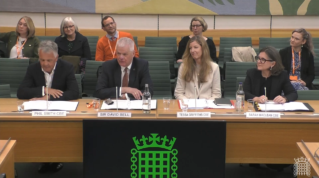In challenging times, we must have the courage to think differently. The UK’s skills gap has been giving British businesses a headache for some time now; we will need to call on different approaches to solve it. Apprenticeships have a crucial role to play, as does the sports sector.
If we zoom out and look at things globally, the view is pretty gloomy. Over the next decade, across the G20 countries, £11.5 trillion of potential economic output could go unrealised if we fail to address the skills deficit.
On top of this, rapid technological advancements and ever-changing net zero requirements mean that skills can become redundant fast. For some skills, it only takes 24 months for the world to have moved on without them.
Here in the UK, things aren’t much brighter, with three out of four companies struggling to find the talent they need. UK training budgets have shrunk by 26 per cent since 2007, reducing the UK’s per-head investment to the lowest in Europe.
All in all, the issue is pretty acute. We’re at a crossroads: we can shake up our approach or carry on with the same strategy that has not taken us very far.
It’s not all doom and gloom, though. The government, with their unveiling of the Skills England Bill, are assembling a taskforce to close the gap. The initiative also includes reforms to the apprenticeship levy and will free up funding so that it can be used more flexibly.
I wholeheartedly support any plans to boost apprenticeships; they will be crucial in fixing the skills gap. And they don’t just benefit businesses but communities up and down the country, too. They empower young people, regardless of background, and are a lever for reducing inequalities across society.
I want to see Skills England succeed. But it will need a properly considered mandate and the right leadership to deliver a cohesive national skills strategy and pave the way for a 21st-century workforce.
The time for policy revisions is behind us. It’s crunch time
Beyond this, Skills England will need to prioritise action. The time for revision after revision of policies is behind us. It’s crunch time. We need well-delivered, tangible solutions to fix the skills gap.
The sports industry undoubtedly has a role to play in this. Sports businesses are societal stakeholders; they know how to bring communities along with them on the road to success.
Having worked in the sports sector for decades, I may be biased. But don’t just take my word for it. The example from South Devon College in these pages earlier this year shows how deep the community impact of marrying sports and skills can go, and it is far beyond the pitch.
I’ve seen it through my own company, too. I have been fortunate to work with some of the most exciting sports brands, helping them to maximise the apprenticeship levy and deliver social impact. When sports businesses open up job opportunities and bring on young talent, they have an astounding effect on the local community.
At their core, sports organisations know how to combine business objectives with community impact; this could be a powerful tool for Skills England.
Sport has long been a cultural cornerstone in Britain, deeply woven into the fabric of our communities. You can’t witness the energy outside your local sports ground on matchday and tell me that sport doesn’t have a unique power to unite. Even more importantly, sports organisations are close to the people they serve; they know their challenges and aspirations.
Skills England must reframe the debate around skills so that they are seen as a pillar of economic growth. Every single stakeholder needs energising; we must inject passion into the topic.
And passion is one thing that’s never in short supply at sports organisations. With its unifying power and extensive local reach, sport can play a vital role in this effort.
We need innovative thinking to fix our skills gap. Skills England could have long-term, locally relevant impact. But if it wants to turn up the dial and multiply its power to affect change, it should bring sports organisations on board.

















Your thoughts